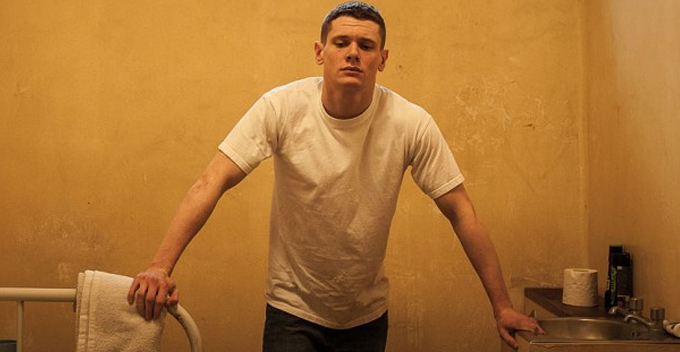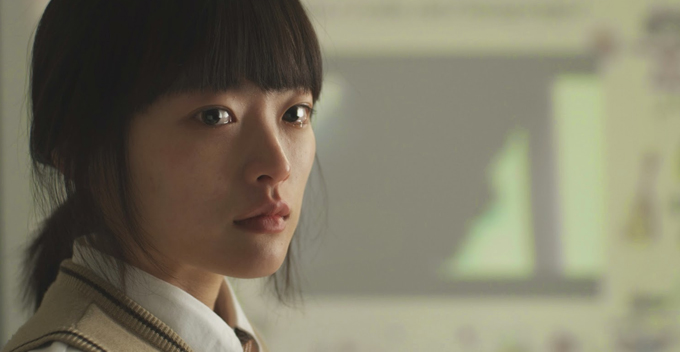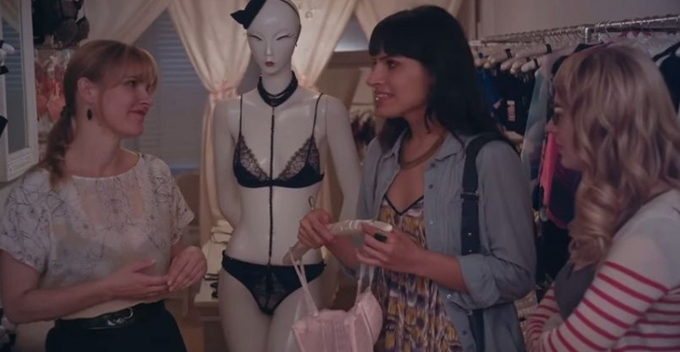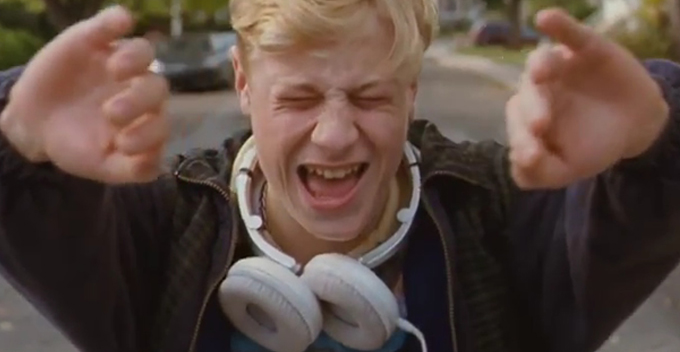On one hand, the two and a half weeks of the Melbourne International Film Festival can be the most stressful time of the year for many people; with the long queues, occasional pretentious snobs, and fallen tears when the malevolent phantom that is the ‘Standby’ queue blows up your chance to see an anticipated film, one can easily be turned off going to cinemas forever. On the other hand though, the Melbourne International Film Festival becomes the cultural hub of cinema in the southern hemisphere for a few weeks, and is of the only places where you’ll get access to a diverse range of documentaries, features and shorts unless you’re planning to venture towards film festivals like Cannes and Toronto.
While we lack the prestige and world premiere status of such festivals, in the 63rd year of MIFF, we still saw films from Richard Linklater and Wong Kar Wai, talks from Joel Edgerton, Catherine Breillat and Margaret Pomeranz, and even a few speed dating evenings.
The hottest selling ticket of the festival went to Linklater’s Boyhood, which sold out within hours of the tickets going on sale. Patrons rushed from The Forum Theatre to RMIT’s Capitol theatre to catch a glimpse of international filmmaking gems that likely never see the light of day in Australia. For a lot of people, if you miss a film at MIFF, you’ll either have to wait a couple of years for an SBS premiere, go to the other side of the world, wait for a DVD, or never see it at all. This year’s line up of films however tended to favour films in English, meaning a number of the picks such as Life After Beth, Wish I Was Here, Locke, Boyhood etc. were already secured for an Australian release.
Speaking to fellow MIFF patrons in these few weeks, you get a good gauge of what the majority of attendees expect from the festival: the chance to see films you would never usually get the chance of seeing. The documentary program in particular is always a highlight for these people, especially considering the unlikeliness of ever seeing a documentary get released in cinemas unless it’s Oscar-worthy.
But MIFF isn’t just about bringing international culture to Melbourne; it’s also about celebrating our own filmmaking industry too. As always, the festival boasted an impressive line up of local Australian cinema picks, a number of which were world premieres. The Infinite Man and Cut Snake were two Australian films that drew crowds in multitudes. I was even surprised to catch a great documentary named Curtain Call, which documented the closure of a community theatre for kids that I drive past every day and never was aware of. The film festival brought together an entire community of thespians and friends for an enjoyable screening of this film, proving that the festival can at once be showcasing the most hotly anticipated films from around the globe and at another be providing a platform to celebrates Melbourne’s culture on a local and intimate scale.
I ended up going to the festival just about every day, ultimately catching 24 interesting films. The best thing about MIFF is that regardless of any film you pick, good or bad, it will be interesting and different and will experiment with the medium. You might see one or two people walking out on a film during your average night at the cinema, but during the film festival you’ll see plenty more: not because the film is clichéd and riddled with familiar tropes, but because the films are so different from anything we’re used to. And sure, some films mightn’t work with all the risks they take, but at this point seeing any film that is alternative to recycled mainstream garbage in any way is enough to attract thousands of MIFF patrons.
I saw some great films, I saw some average ones and even a few that totally stunk, but I didn’t really mind in the end, because I was just happy to be there as a filmmaker and learn from the mistakes of others by identifying what did and did not work. Surprisingly enough, at this year’s festival, I ended up catching – without any hyperbole whatsoever – the best film I’ve ever seen.
So for all of you film buffs that missed out/didn’t realize the festival was this month, and you who weren’t able to catch everything you wanted to, I’ve complied a list of the top 5 films I caught at the festival so you know what to keep an eye out for in the next year or so.
5. Starred Up (UK, 2013)
I’m a big fan of Jack O’Connell (aka Cook from Skins), just because you never expect the short English guy who appears to be the definition of a chav to be a really good actor. He was recently casted in the lead role of the Angelina-Jolie-directed and Coen-Brothers-written feature film Unbroken, and you figure to be casted in such a high profile role you’ve got to have some talent, right? Starred Up sold out real quickly, but I was lucky enough to snatch a last minute ticket. To be honest, I’m kind of sick of prison dramas because post-Oz they almost always come out the same to me. I took a shot with this anyway, and I was shocked by how realistic everything was. You get the impression that this isn’t a melodrama set in prison, it’s almost direct cinema with the camera invisibily planted inside a prison to record inmates. Screenwriter Jonathan Asser spent many years in prison as a therapist, so there’s no question where the verisimilitude comes from. If Short Term 12 last year was a realistic portrait of displaced and troubled youth, then Starred Up is the most realistic portrait of people you’ll find in prison: people who you continually hope will have an epiphany and develop morals, but ultimately never do.
4. Boyhood (USA, 2014)
Richard Linklater’s 1991 film Slacker is one of my favourites of all time, so obviously whenever he touches anything I’m immediately interested. He knocked it out of the park with Before Midnight last year, and following Boyhood’s premiere at Sundance this year, it’s been named (perhaps prematurely) one of the best films of all time. With a 100 per cent rating on Metacritic, a feat that is practically unheard of, Boyhood has become the cinematic event of the year for all cinephiles. By now, you’ve surely all heard of this film, the one that was filmed over 12 years with the same cast. It’s taken the cinema world by storm, sold out within hours at MIFF, and there’s no question it will conquer the awards season next year. I agree with all this praise, however I find the film to be inferior to Linklater’s previous efforts. It’s a great film wherein you’ll vicariously live someone elses’ life; however, I found it to include one too many clichés for my liking, and way too American for me to fully identify with all the characters. For this film, it’s gotten to the point in the US where publications are silencing their reviewers who write remotely negative reviews of the film. I’d actually compare it to James Cameron’s Avatar because the way that it was filmed is more interesting than the plot itself. However, I’m so shocked that Linklater was able to have a consistent tone over 12 years of making one film, and my criticisms are only minor in what is a stupendous film.
3. Hang Gong-ju (South Korea, 2013)
Han Gong-ju was a film I hadn’t heard of before reading the MIFF program. I made the choice to see this film solely because the description mentioned a lonely teenage character, and lonely teenage characters usually equal a Bildungsroman. I love coming of age films more than any other genre, and you could argue that every film in this list is a coming of age film in different types of ways. However, nothing could prepare our eponymous character Hang Gong-ju’s intense story, which I’ll do you the favour of keeping quiet about. You don’t really understand what’s going on for the first few acts of the film, but you soon start to piece everything together and the truth of what happened to her is unearthed; and trust me, it’s pretty dark. Somehow the film balances a really dark subject matter with really optimistic sequences. For the most part, you really hate our protagonist for being so rude and unwelcoming to everyone she initially meets, but by the end you realize that you’d judged this girl just like everyone else in her life. On one level with Hang Gong-ju, we want our character to move on from whatever her tragedy was, but at the same time we’re so curious about what the tragedy was that we can’t let her forget.
2. Appropriate Behavior (USA, 2014)
I have a friend who worked at Sundance earlier this year and told me that Appropriate Behavior was one of the best films she’s seen. While I love the mumblecore genre, ever since Lena Dunham thrusted it into the spotlight with HBO’s Girls, every mumblecore film and TV show since has felt quite derivative and less original. You only have to look at Noah Baumbach’s Frances Ha from MIFF last year, when people actually referred to it as a Girls movie. Firstly it was in black and white, secondly the score was almost exclusively constructed from French New Wave film soundtracks, and thirdly, the only similar thing at all between Frances Ha and Girls was the protagonist. Appropriate Behavior does feel very inspired from both these sources, however where it triumphs is that for once it’s not a middle class heterosexual white girl commenting on things, but a middle class bisexual Iranian girl commenting on things. Writer, director and star Desiree Akhavan nails the mumblecore comedy genre, and adds a considerable amount of depth to the form as a threefold minority. Our protagonist deals with oppression from almost every direction, but that doesn’t define who the character is, and Akhavan doesn’t try and preach anything to you. She’s merely a girl who happens to be a bisexual Iranian, but deals with all the same bullshit as Hannah would in Girls. It’s interesting to see this genre take a refreshing new direction just when it began to get overdone.
1. Mommy (Canada, 2014)
You’ll just have to trust me when I say that I’m not an absolutist. There will still be things I dislike about my favourite books, or points that I disagree on with my idols, but when it comes to the new effort by Canadian superhuman Xavier Dolan, there’s nothing I can find fault with: Mommy is the perfect film. If you’ve been following the film section of this website since the start of the year, you would have seen me pick this as my most anticipated film on the Cannes lineup, and again as my most anticipated film for the MIFF lineup, and now, I’m naming it the best film I’ve ever seen. While I could never hate anything that Xavier Dolan touches, I was still somewhat sceptical about this film when it was first announced because the plot didn’t really appeal to me that much: a kid with ADHD returning to be raised by his single mother didn’t sound like anything new. I was blown away to the point where to this day I cannot stop thinking about it. I skipped seeing another one of my MIFF anticipated film Obvious Child just so I could check out this film on the big screen once more. Everything from the Céline Dion and Oasis montages to the stupendous acting complimented Xavier Dolan’s original direction to create a masterpiece unlike any other film you’ll see. He uses music better than any other director working at the moment, and every single frame of this film is so magnificently composed and coloured to perfection. I am honestly finding it hard to conjure up words to express my love for this film because I’m afraid I won’t do it justice, but let’s just say that any film which can make you appreciate something as goddamn basic as aspect ratio is something on a whole other level of filmmaking.
Honourable mentions go to: Life Itself, God Help the Girl, Love Hotel, Stray Dogs and Hard to Be A God.














